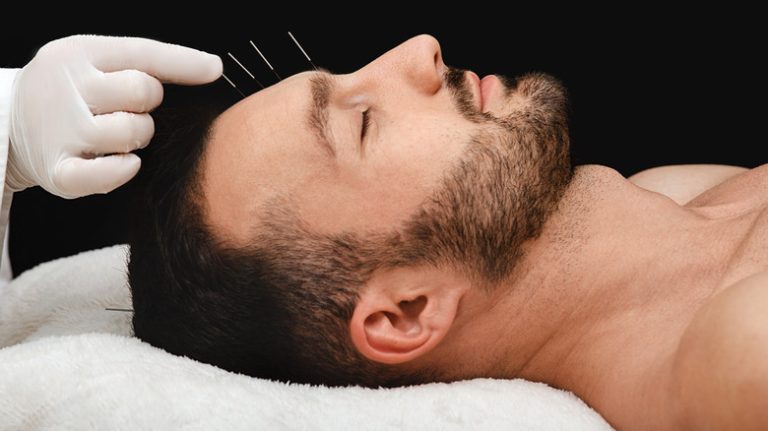Extroverts usually have some tell-tale signs. They might enjoy being the center of attention, have a lot of friends whom they hang out with regularly, talk more than others at parties, and gain fuel from group activities whether that be at work or play.
Your personality type affects a lot of facets of your life, which is why there are questions like are you more introverted or extroverted and what does this mean for your relationships? But, while some signs are outwardly visible, others are more hidden, so to speak. One hidden thing that could give you a clue as to whether you’re extroverted is your sleeping position, according to sleep disorder expert and director of the Sleep Assessment and Advisory Service, Professor Chris Idzikowski.
Idzikowski, who surveyed about 1,000 British adults in a study, found a connection between what he named the “log” sleeping position — on your side, with both your legs stretched out straight and your arms by your sides — and an extroverted personality, per BBC. As many as 15% of those surveyed apparently identified as log sleepers, per WebMD.
Log sleepers are easy-going and trusting

Part of being an extrovert is the ability to make friends quickly and seemingly effortlessly. Perhaps this is why those who sleep like a log are easy-going and trusting of strangers. Per Idzikowski, however, there is also the cautionary element of gullibility with log sleepers. Those who are easily trusting can fall prey to being tricked because they might believe something they hear from someone they don’t really know. Goes to show that any personality type has its pros and cons.
The idea behind sleeping positions being indicative of our personality may not be rooted in lots of science, but sleep experts and other health professionals have been interested in the topic for quite some time. The basic premise might be that how we curl up (or not) in bed is something we do very unconsciously and is therefore rooted in our subconscious, according to Psych2Go. This could be a good enough reason to believe that how we sleep can tell us about who we are. As shared by a co-founder of NYC Surgical Associates, David Greuner (via Reader’s Digest), “When you think about it, most people spend six or more hours per day sleeping, so of course your sleeping position reveals a lot about you.” Your health is another thing your sleeping position unveils about you.
Being a log sleeper also benefits health

Uncomfortable as the log position might look for compared to other sleep positions, those who sleep on their side with their backs positioned straight might actually be doing their spines a favor, especially when it comes to reducing back or neck pain, per WebMD.
Furthermore, have you ever noticed how those who favor sleeping on their back make the worst bed partners because they snore louder than anyone else? Well, you won’t have to worry about that if you’re rooming with a fellow log sleeper. Sleeping disorders that have snoring as a symptom (for example, sleep apnea), are managed more efficiently when someone sleeps on their side. But you might want to wedge a soft pillow between your legs to keep strain off your hips, suggests WebMD.
Interestingly, there might be an offshoot of the classic log sleeper, as explained by Nectar Sleep’s lifestyle and wellness expert, Erin Berman, per Hello! They’re called the “yearning dreamers.” They sleep on their sides with their legs stretched out but their hands are placed in front of them like they’re reaching for something. While this position also allows for optimal spine alignment (with less strict positioning of the arms), a yearning dreamer’s personality is one of cautious friendliness, especially with new people. They might not be as extroverted as the log sleepers but they still have an open personality.
